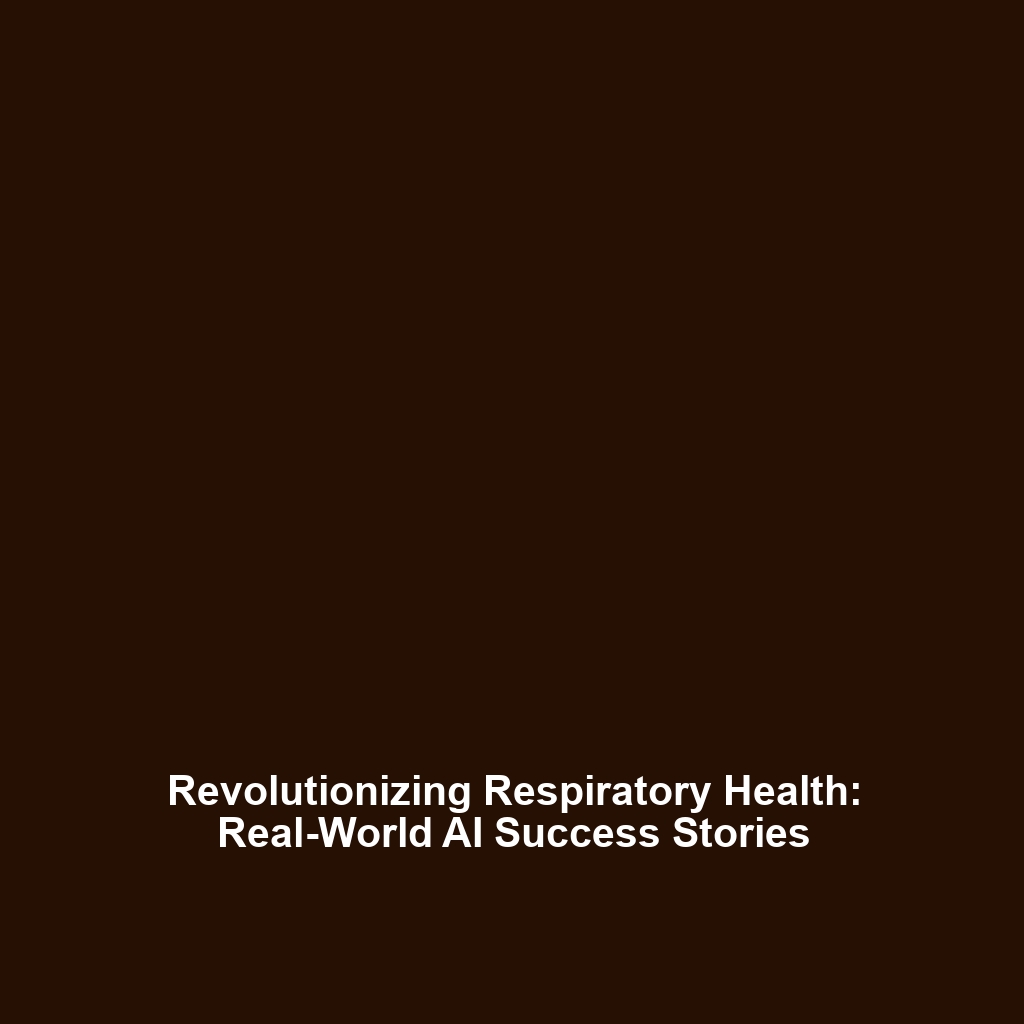Real-World Examples of AI Being Used to Improve Respiratory Health Outcomes
Artificial Intelligence (AI) is reshaping various sectors, with healthcare being at the forefront of its transformative capabilities. In particular, AI applications are making significant strides in improving respiratory health outcomes. From early diagnosis of chronic conditions like asthma and COPD to personalized treatment plans, the integration of AI in healthcare is enhancing patient care and operational efficiency. This article will delve into real-world examples highlighting how AI is effectively addressing respiratory health challenges, emphasizing its relevance in AI healthcare.
Key Concepts in AI and Respiratory Health
The intersection of AI and respiratory health focuses on several core concepts:
- Predictive Analytics: AI algorithms analyze patient data to predict respiratory issues before they escalate.
- Remote Monitoring: AI-powered devices allow continuous tracking of respiratory parameters, enabling timely interventions.
- Personalized Medicine: AI facilitates tailored treatment plans based on individual patient profiles and historical data.
These concepts are crucial as they showcase the capabilities of AI to enhance respiratory health outcomes through tailored approaches, further underscoring the significant role of AI in healthcare.
Applications and Real-World Uses
Several notable applications illustrate how AI is used to improve respiratory health outcomes:
- AI in Diagnosing Asthma: Tools like IBM’s Watson Health analyze electronic health records to identify patients at risk of asthma attacks, helping physicians take preemptive measures.
- Telemedicine and AI: Remote consultation services powered by AI algorithms are enabling physicians to monitor and manage respiratory conditions, making healthcare more accessible.
- Wearable Devices: Smart inhalers embedded with AI can provide real-time feedback and alerts to both patients and healthcare providers, ensuring adherence to treatment.
These applications exemplify the practical uses of AI in healthcare and demonstrate its efficacy in improving respiratory health outcomes.
Current Challenges in AI and Respiratory Health
Despite the advancements, various challenges hinder the widespread implementation of AI in improving respiratory health outcomes:
- Data Privacy: Concerns regarding patient data security can limit the sharing and analysis of health information.
- Integration Issues: Many healthcare infrastructures face difficulties in integrating AI solutions with existing systems.
- Validation of Algorithms: The accuracy and reliability of AI algorithms need to be rigorously validated for clinical applications.
Addressing these challenges is essential for the future development of AI technologies in healthcare.
Future Research and Innovations
The future of AI in enhancing respiratory health outcomes looks promising with several potential innovations on the horizon:
- AI-Driven Drug Development: Innovative approaches to drug discovery with AI can expedite the development of treatments for respiratory diseases.
- Advanced Imaging Techniques: The application of AI in imaging can lead to more accurate diagnoses of pulmonary diseases.
- Predictive Modeling: Future research may refine predictive algorithms that can foresee respiratory complications based on diverse variables.
These innovations could significantly impact how respiratory health is managed and treated in the coming years.
Conclusion
In summary, real-world examples of AI improving respiratory health outcomes highlight a crucial area of advancement within AI in healthcare. As AI continues to evolve and address significant challenges, its potential to enhance patient care becomes increasingly apparent. Stakeholders must advocate for the integration of these technologies while addressing ethical and logistical challenges. For more insights into AI in healthcare, you can explore our other articles that delve into various applications and innovations in this field.
